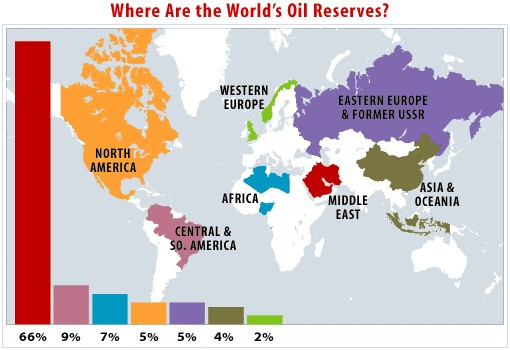-
Q. Discuss the multi-dimensional implications of uneven distribution of mineral oil in the world. (250 words)
28 Mar, 2022 GS Paper 1 GeographyApproach
- Start with an introduction explaining the uneven distribution of mineral oil.
- Explain various implications that the uneven distribution has.
- Conclude suitably.
Introduction
Petroleum is not distributed evenly around the world. Slightly less than half of the world’s proven reserves are located in the Middle East (including Iran but not North Africa). Following the Middle East are Canada and the United States, Latin America, Africa, and the region made up of Russia, Kazakhstan, and other countries that were once part of the Soviet Union.
Body
The uneven distribution of oil across the globe have many multi-dimensional implications such as:
- Economic: Uneven distribution of the mineral oil across the world, affects the balance of trade between the importing and the exporting countries. This in turn affects the Foreign-exchange reserves of the country.
- It also leads to economic consequences like inflation, for the importing country. For example:
- India’s dependence on oil and natural gas are the major reasons behind India’s current account deficit.
- A sharp and sudden spike in fuel prices triggered a national crisis in Kazakhstan.
- It also leads to economic consequences like inflation, for the importing country. For example:
- Political: Many historical and present-day conflicts involve nations trying to control resource-rich territories. For example:
- The desire for diamond and oil resources has been the root of many armed conflicts in Africa.
- USA’s interference in the geopolitics of West Asia is also one of the reasons for uneven distribution of oil minerals.
- Employment & Migration: Availability of Oil reserves leads to more job opportunities in the Middle east. That is the reason why India has a large diaspora in the middle east.
- Energy Security: The uneven distribution of the mineral energy resource is the reason for energy insecurity in the oil deficient countries.
- It also directly affects their strategic autonomy. Therefore one of the prime concern of policy makers is to ensure energy security in the country
- Diplomatic leverage : The uneven distribution of oil resource is a important factor in leveraging its availability for diplomatic gains. For example:
- India had to succumb to the USA's sanctions to discontinue its import of cheap Iranian oil.
- Similarly, Pakistan’s strategic location creates significant hindrances to TAPI gas pipeline.
- Uneven Growth: Uneven distribution of mineral oil also has led to uneven growth across the globe. Rise in import prices directly hamper the capabilities of the government to spend on welfare objectives.
- Policy makers globally have largely recognized the significance of the relationship between energy and growth. That being the case, it's an agreed fact that growth and energy reinforce each other.
Conclusion
As the uneven distribution of the mineral oil resources leads to various implications ranging from economic to energy security . This highlights the need for India to diversify its energy basket both in terms of content and geography.
Reducing dependence on imported fuels and diversifying energy sources for production of electricity is an important policy direction to enhance energy security which also leads to reduction in emissions and promotes economic development.
To get PDF version, Please click on "Print PDF" button.
Print PDF





